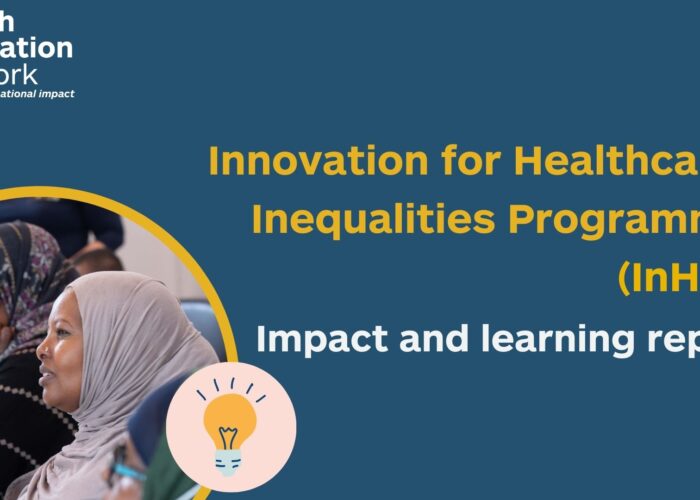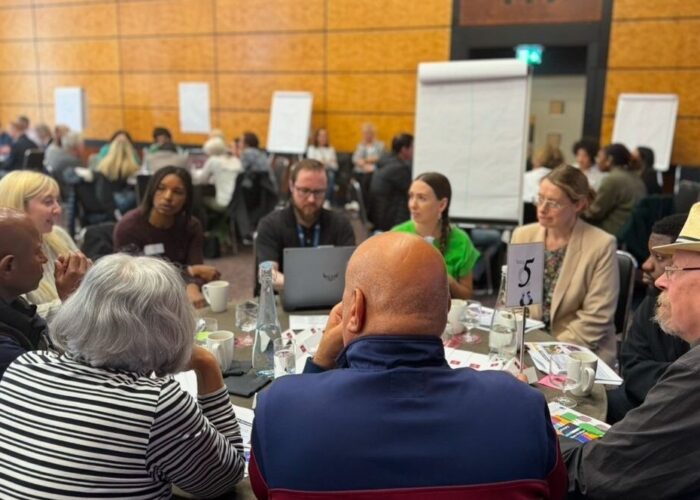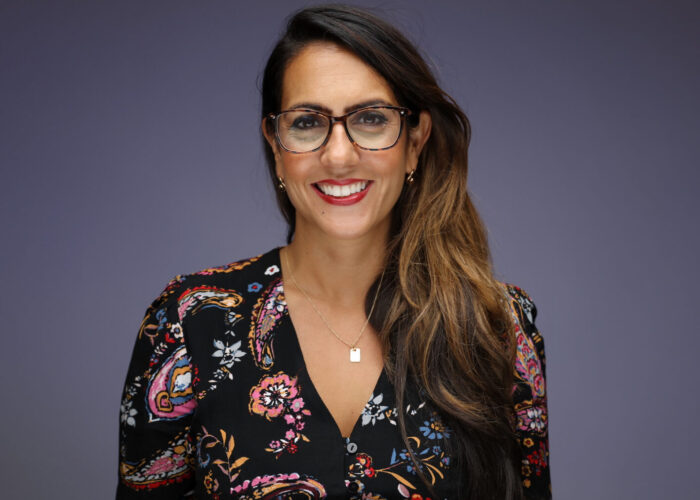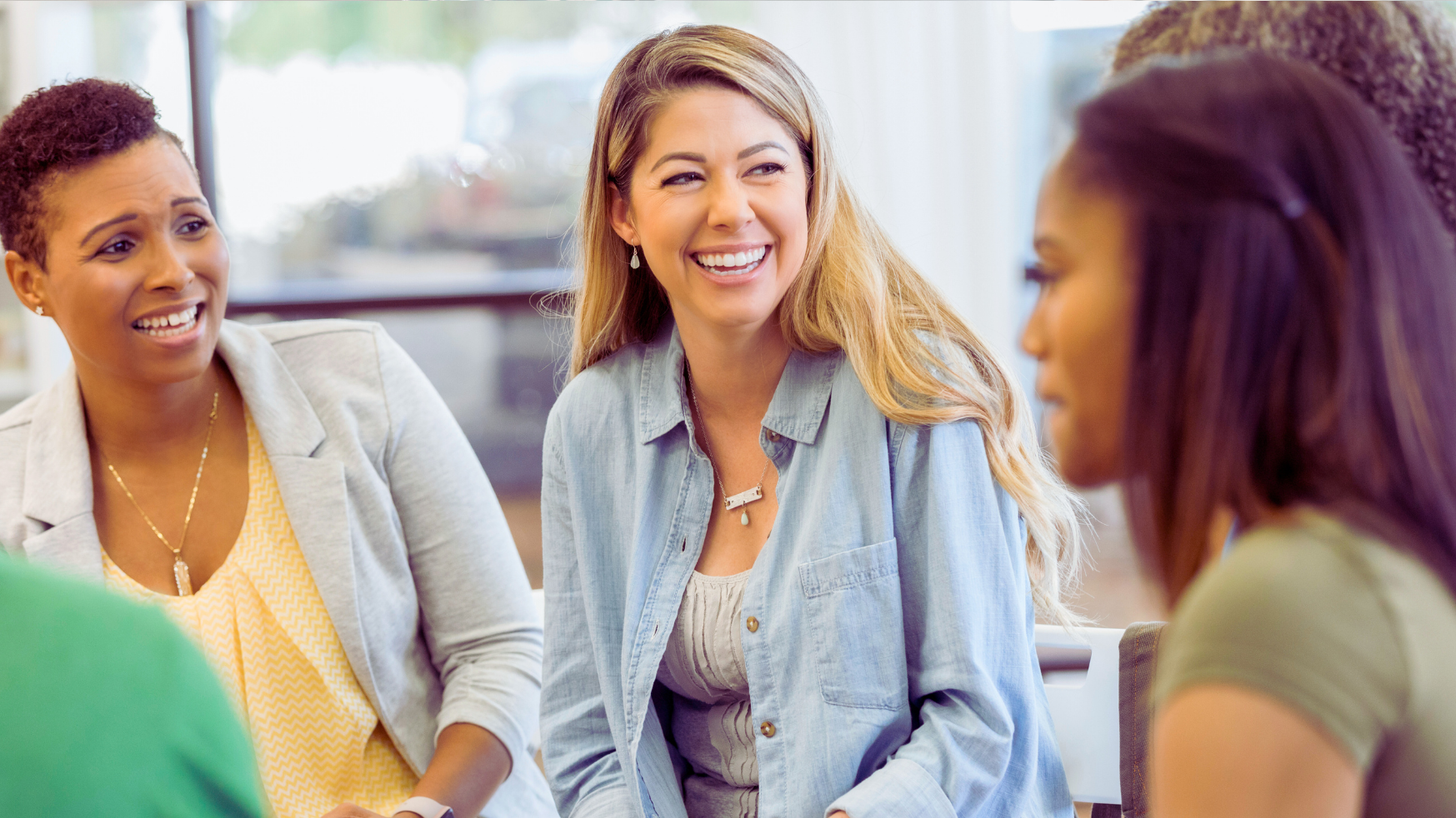
Over the past nine months, Imperial College Health Partners have embedded two Lived Experience Partners in the North West London Mission for Research and Innovation to optimise care for children and young people’s mental health and neurodiversity (ND) support.
Lived Experience Partners are people involved in shaping our work by using their personal experiences and actively collaborating with our team. Ellie and Deepa joined ICHP as partners in March 2024, with lived experience of mental health and ND within NW London health and care services. They provide us with a wealth of knowledge and invaluable advice to help us improve design, development and delivery of services for children and young people (CYP) in NW London.
In this blog, we hear from Ellie and Deepa as they reflect on their experiences so far of working with colleagues at ICHP.
My name is Deepa, mother to an amazingly empathetic and intelligent neurodiverse son who is now 13 years old. Taking on the role of a Lived Experience Partner is both a privilege and a profound responsibility. It’s an opportunity to bring authenticity, empathy and a unique perspective to systems designed to support people navigating the complexities of neurodiversity.
In discussions with the ICHP team we play an active, constructive and co-operative role, reflecting a range of perspectives as well as personal experiences. Each meeting, online or in person, has given me the opportunity to contribute in a valuable way which has facilitated the progress of the Mission, taking the lived perspective into account throughout.
I enjoyed the Innovation Forum event where various stakeholders gathered in-person to find solutions for the collective aim. It was great to see this from the planning stage through to the day itself and taking forward the suggestions into a viable solution. We are now helping to take forward the Mission’s project to integrate mental health and neurodiversity provision in Child Health Hubs. I’ve also enjoyed collaborating and contributing suggestions for steering the evaluation plans, especially how to measure impact for CYP and families.
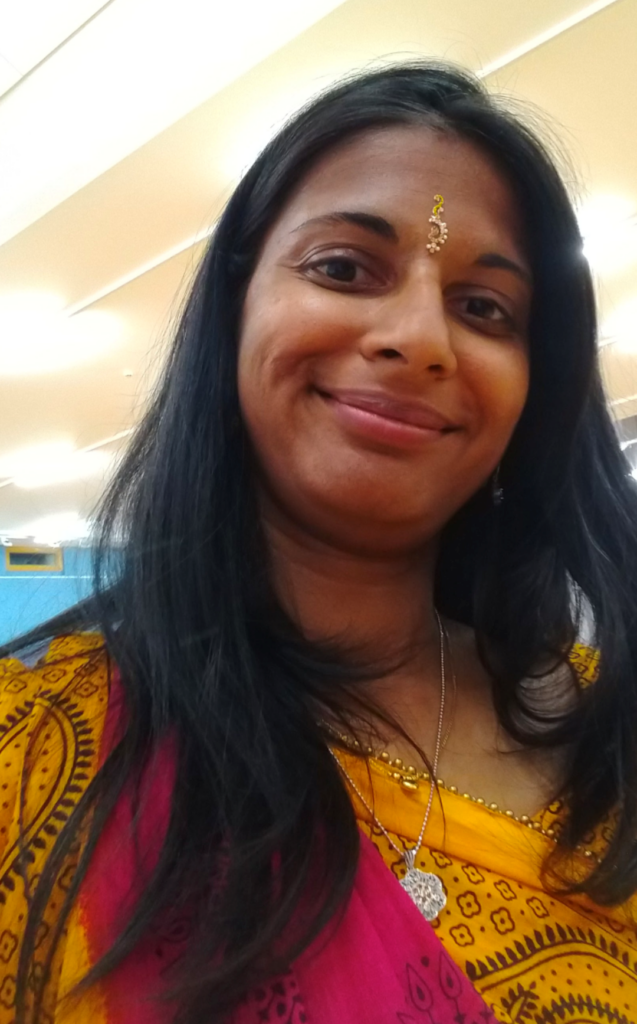
I enjoyed the Innovation Forum event where various stakeholders gathered in-person to find solutions for the collective aim. It was great to see this from the planning stage through to the day itself and taking forward the suggestions into a viable solution. We are now helping to take forward the Mission’s project to integrate mental health and neurodiversity provision in Child Health Hubs. I’ve also enjoyed collaborating and contributing suggestions for steering the evaluation plans, especially how to measure impact for CYP and families.
Here’s my poem in summary:
“The role of a lived experience partner at ICHP has been an insightful and varied one,
My voice and feelings have been taken into account, as a parent of a lively neurodiverse son.
The day to day struggles which families endure cannot be underestimated,
The toll it takes not only on the child’s mental health but beyond, are heavily weighted.
A lot of the time you appear to be fumbling in the dark on a glorious sunny day,
The seasons blur into one and it feels like the cold of the winter is here to stay.
If a ray of hope can be shone upon the path, and you know you’re not alone,
I’m sure this is the greatest wish, for universal compassion and an understanding tone.
When you’re assured there’s a place you can go and someone’s there listening,
You finally feel seen, heard and can look forward to a brighter future full of glistening.
To be part of a solution is a gift, one which has immense power to change reality,
It’s a mission, that’s for sure, but anything is possible with vision, direction and practicality!
Young people are our future fruits, lets collectively branch out, embrace positive change, unlock the key,
The role of the lived experience partner is the foundation, the roots of the growth of the neurodiversitree!!”
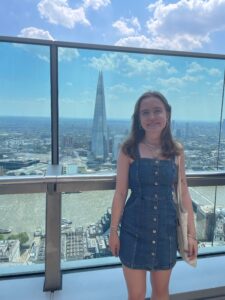
I’m Ellie, a final-year Psychology student and have personal experience with ADHD, which allows me to bring a unique and valuable perspective to the programme development, ensuring that lived experience is central to shaping the ICHP mission. Through first-hand understanding of the challenges of living with a neurodevelopmental condition and healthcare access, I have contributed to inclusive and impactful strategies that align with the goals of ICHP to improve mental health outcomes for CYP in the region.
As part of planning the Innovation Forum event, I was able to draw on my own experience of late diagnosis with ADHD. We developed fictional patient profiles to prompt discussions but I noticed we lacked representation of a young person over the age of 14. I advocated for and contributed to the inclusion of a profile of a young adult, highlighting the unique challenges faced by someone experiencing difficulties upon starting university and transitioning into adulthood.
Recently, we have begun work on the integration of mental health and ND provision within Child Health Hubs (CHH) and I have helped to interview health professionals and parents to gather their perspectives on implementing the new model. I also joined an online co-design workshop. Giving my own opinions and hearing others’ perspectives was particularly interesting and helped us to consider the barriers to implementation as well as priorities for families, like holistic care and better connection between school and educational support.
Another particularly interesting aspect I’ve had an opportunity to work on is how we will measure the impact of the Mission. We’ve collaboratively explored how to evaluate the effectiveness and outcomes of our project, ensuring we’re aligned with the Mission’s objectives and the needs of CYP. This process deepened my understanding of impact evaluation, something I had not worked on before. It was also important for me to see how our work as Lived Experience Partners will impact CYP.
A lot of the time, I feel that the perspectives of young people and those with lived experience are overlooked. As an adolescent, I often felt misunderstood, which I believe was reflective of many services failing to take the time to listen to and consider the opinions of their users. Having Lived Experience Partners enables ICHP to bridge this gap, ensuring that the voices of those directly affected by the issues being addressed are heard and valued. It allows for more accurate, empathetic, and effective service design, as those with lived experience can provide invaluable insights into what works and what doesn’t. By including those who have navigated these challenges themselves, ICHP ensures that services are truly person-centred and responsive to the needs of the community.”
We believe our work should be influenced by the people who use and need it the most and we’re proud to involve Lived Experience Partners at ICHP to ensure those needs are represented and reflected in everything we do. Thank you to Ellie and Deepa for their continued collaboration and partnership.
Find out more about our work on the NW London Mission to support children and young people’s mental health.
Want to find out how you can work with us? Get in touch

